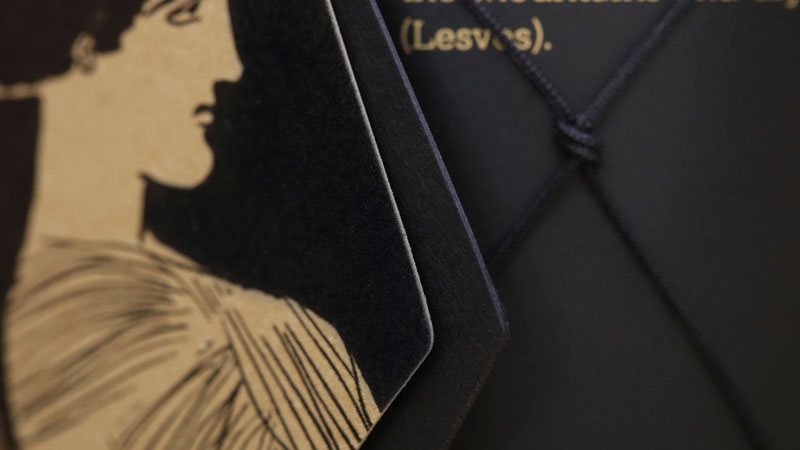The name Sappho is inextricably linked with Lesvos: it names the greatest lyrical poetess not only of ancient Greece but, according to many researchers, also of all time.
Born in Eressos at the end of the 7th century BC, the Lesvian poetess is considered a ground-breaking figure for her unique talent and her political action, the latter of which led to her spending an amount of time in exile in Syrakoussae.
She was born to an aristocratic family and was daughter to Skamandronymos and Kleida and sister to Larichos, Charaxos and Eurygios. It is said that Sappho married Kerkylaos and bore him a girl child. Following the abolishment of the tyranny (590-580 BC), her homecoming to Mytilene coincided with the founding of her school of music. This was attended to by beautiful maidens of aristocratic descent, to whom Sappho taught the arts of music and poetry. Known also as “the tenth muse”, she is renowned for love poems defined by sentimentality and immediacy and also by the homosexual tendencies Sappho is claimed to have expressed towards her pupils.
According to historical researchers - and some comedy-writers from Attica - Sappho maintained love relationships with some of her pupils, while it was reputed that she was enamoured with Atthis, Telessipa and Megara. The only poems that survive in their entirety are her Hymn to Aphrodite and her Ode to a beautiful maiden, which celebrate female love and reinforce supposition that Sappho was homosexual.
Even as more recent researchers have cast doubt over this kind of speculation on Sappho’s sexual preferences - and despite the existence of a rumour that has Sappho take her own life in Leufkada over the love of the young man Faeon - her name remains linked with Sapphic love. Other known poems include Sappho’s Hymns and Epithalamia (known also as wedding songs), which were lost together with her remaining work during the Christian raids from 4th century BC onward.
An equally significant figure was that of Alkaios, a poet and contemporary of Sappho. Alkaios was both politically restless and politically active. He fought against tyranny, and played a role in overthrowing the tyrant Myrsilos and aiding the rise of Pittakos to power. The latter man repaid Alkaios by betraying him, forcing him to exile in the city of Pyrra, and his assumption of power meant that Alkaios returned to Mytilene, then travelled to Thrace, Kyzikos and finally Egypt. His works are endowed with strong political elements: deeply affected by the historical and political subject-matter of his time, Alkaios used his poetry to express his opposition to tyranny on Lesvos.
Remaining excerpts also make reference to ancient heroes and gods and, in addition, to mythological themes. His aura was admired by many subsequent poets (among them Theokritos and Horatio) who were influenced by the work of Alkaios. Several of his songs were performed in the symposia held in Athens in the 5th century BC. Sappho and Alkaios, who have lent their names to our select olive oils, are considered a poetic couple and maintain their timeless status as two of the foremost figures of Lesvos.

